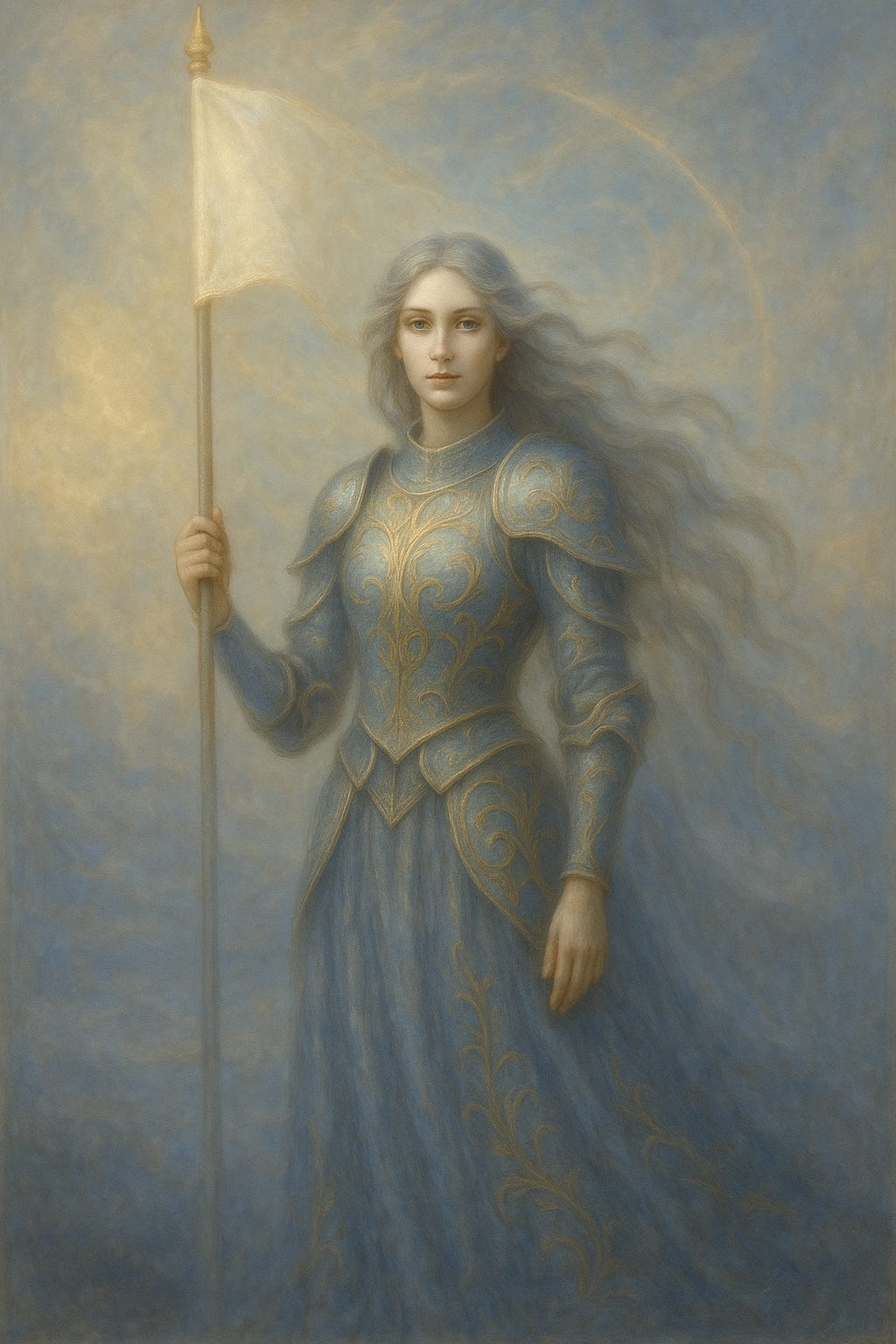The Language of the Flame
Caelia’s language was not composed of words, but of thought.

Read the entire House of New Bethany series here.
Caelia’s language was not composed of words, but of thought.
It did not argue or persuade; it gathered.
In a world fractured by dispersion, where meaning is easily clouded and the intellect loses its radiance, her presence restored something older—a fragment of a lost tongue in which thinking itself is an act of fidelity. Through her, a path of clarity appeared: the Golden Thread, its order forming quiet guardrails that held the mind steady as it passed through the mists of confusion.
Because Caelia guided me through a gathering that gathered the gatherer, thinking itself became the sacred mode of the journey. To think rightly was not to calculate, but to receive—to allow Being to be gathered into thought without distortion. In sustained stillness, scattered attention was drawn back into coherence. Thought became prayer without words; contemplation became communion without grasping. What had been fragmented found rhythm, and what had been obscure began to shine.
From that stillness, a way out of the Dark Forest quietly opened. The enclosure of subjective selfhood, long tangled in shadow, gave way to the gleaming presence of the converging flame. Ahead, the Golden Thread appeared—not brightly, but discernibly—like a valley at dusk, half-seen and inviting. I had been blind; now I could see, though only by degrees.
It was then that Mirelda drew near within a dream. She did not speak, yet her presence carried unmistakable primacy. She stood at the threshold of what lay ahead, as though keeping watch over the adventure concealed within the valley. From that moment, she was bound to the journey—not as guide who commands, but as presence who abides.
As the Golden Thread slipped further into mist, the pure dark night of faith descended. Sight withdrew. And in that holy obscurity, Mirelda’s poetic syntax began to rise—a gentle rhythm emerging from the unseen, forming quiet lampposts along the hidden way. Through her, language itself was transfigured.
The path continued—
no longer in sight,
but in song.

